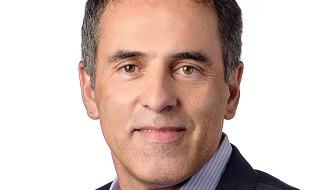
Despite the Canadian Biomarker Integration Network in Depression’s goal to define biosignatures that make depression cases unique by looking at molecular profiling, pre-clinical work, data science and neuroimaging, Dr. Claudio Soares said the organization is about 10 years behind other specialties.
“We’re just trying to play catch up. We’re trying to do what other specialists have been able to do,” said Soares, professor and chair of the department of psychiatry at Queen’s University’s School of Medicine and executive lead at the Canadian Biomarker Integration Network in Depression at St. Michael’s Hospital and the University of Toronto, at Benefits Canada’s 2018 Mental Health Summit Toronto on Nov. 12.
“If you have lung or breast cancer or if you are suffering from alcoholism and want to test a new drug, you’d hope that you’d be able to determine it was actually working for you.”
Read: What resources can employers use to assess employee well-being?
There are four different biomarkers, said Soares, including diagnosis, treatment, resilience and wellness. “What would make you more unique in terms of the way you respond to an antidepressant and remain well, as opposed to being a high risk for a relapse?”
Mood and behaviour analysis is still done the old fashioned way, with a pencil and paper, he said, noting doctors ask patients about their mood and sleep, which relies on recall and can be biased.
“We have to advance that and be able to collect information in a more meaningful and real time way,” said Soares. “That’s when technology like wearables — Fitbits or smart devices — can be very helpful. A digital phenotype is the idea of collecting information from the way you use your devices that will help us to understand your mood and your behaviour.”
Read: A look at using pharmacogenetic testing in determining depression treatment
Digital phenotyping is similar to an emotional electrocardiogram worn 24 hours a day, with data collected in a passive way through an app on a smartphone, he said. This data can include the number of steps taken, quantity and frequency of texts, length of time it takes to answer a phone call, speech and intonation of voice and how the voice changes with stress. It also uses location entropy, which is how activity is expanded or contracted based on mood and behaviour.
Soares cited a study by the Massachusetts Institute of Technology that found information collected through wearables and smartphones could predict stress levels, use of mental-health services and suicidal ideation with 85 per cent certainty. The Canadian Biomarker Integration Network in Depression, which has conducted similar work, found an accuracy rate of 88 per cent when comparing the data provided by patients answering questions about their mood and behaviour.
In any situation, there’s still a need to involve a doctor, said Soares, but noted this added information is important. “Hopefully, technology like that will help us to understand the risk factors or the precipitating factors for depression.”
Read more coverage from the 2018 Mental Health Summit.
